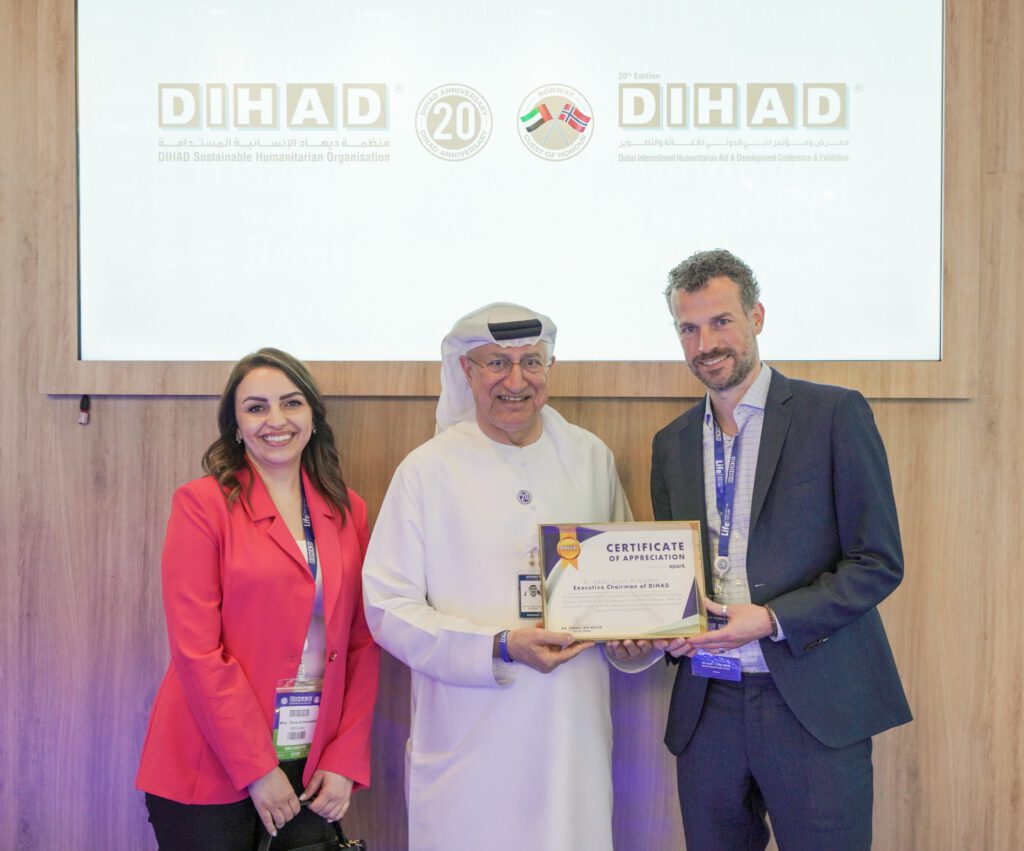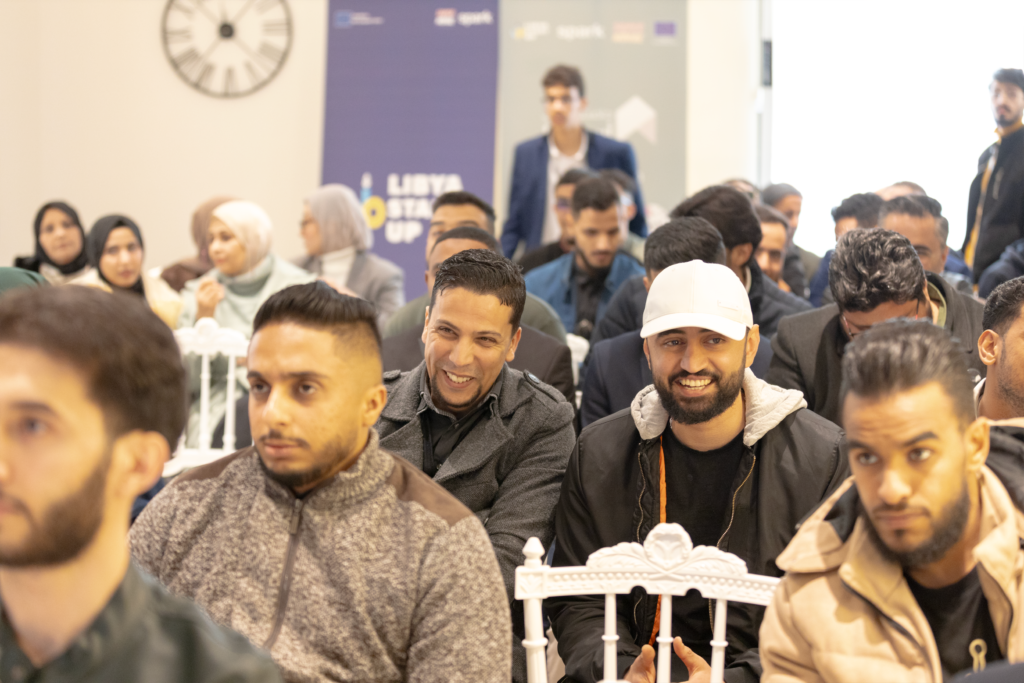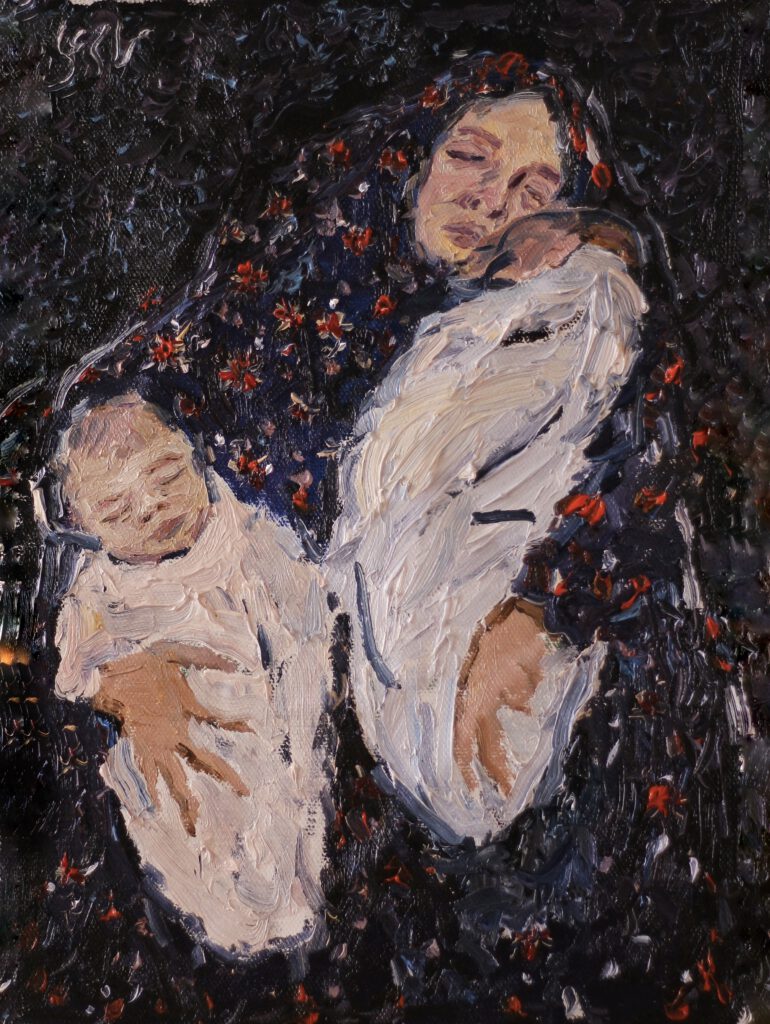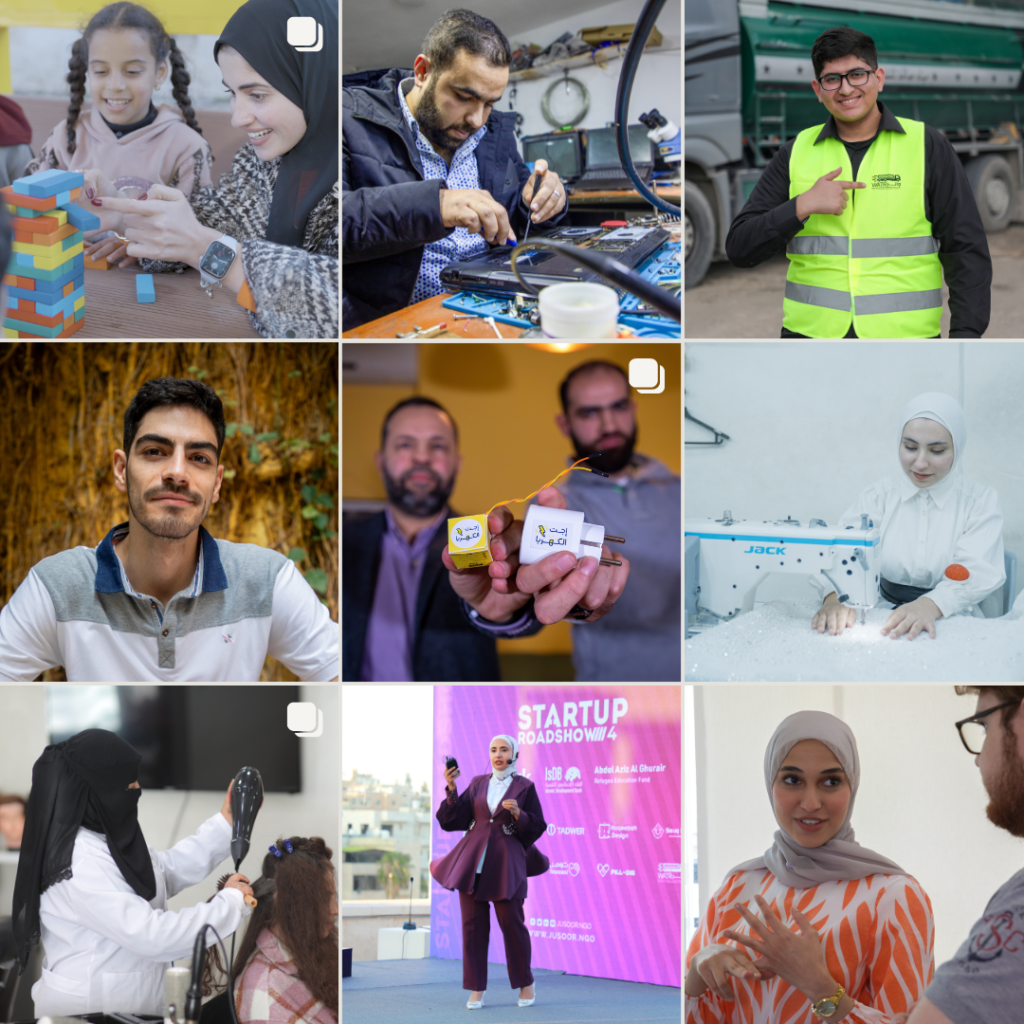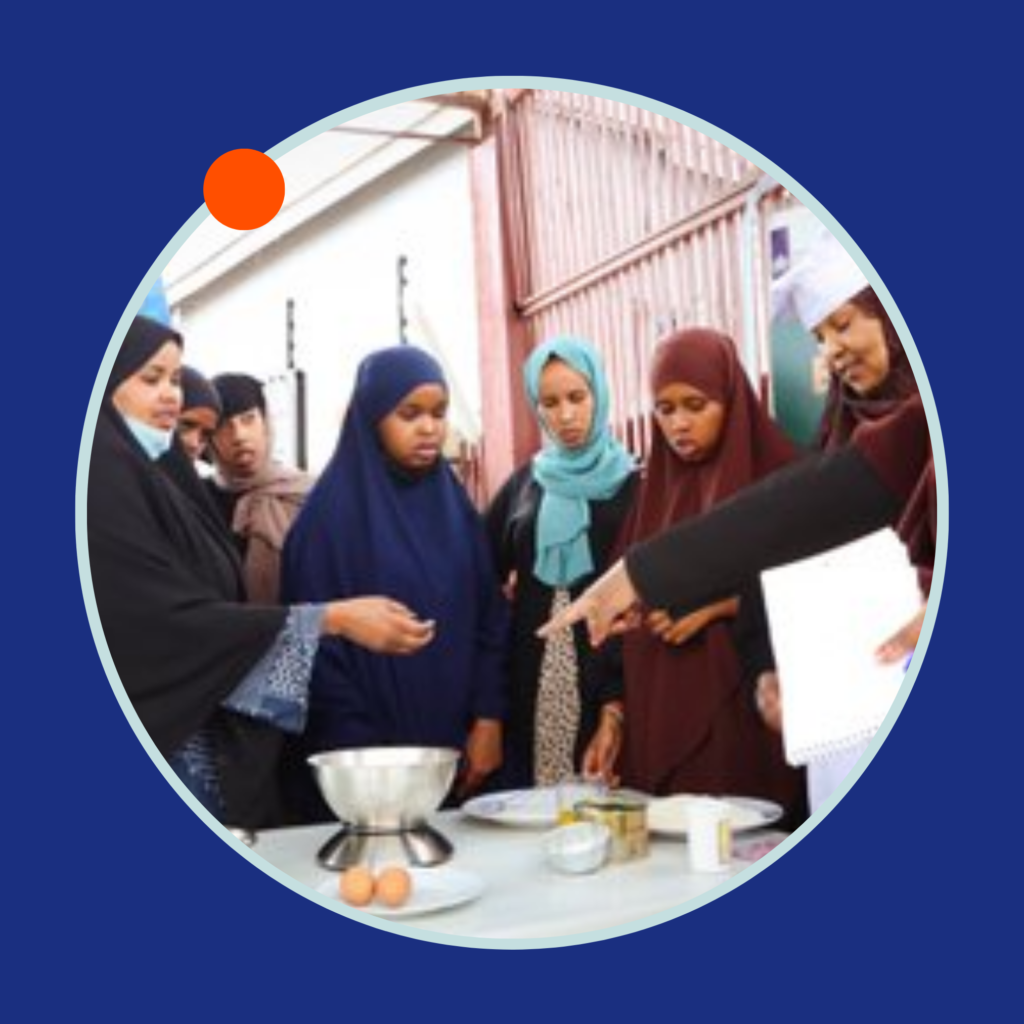5 Short Courses turning Syrian Youth into Agronomists

Before the conflict, the agricultural sector accounted for 18% of Syria’s GDP, according to the United Nations Food and Agriculture Organization. However, since 2015 the number of food insecure people inside Syria has reached 8.7 million. For those refugees residing in the countries surrounding Syria, being able to afford enough food to feed the family is also a concern for many people.
With 3.3 million Syrians registered with the UNHCR, Turkey has become the largest host nation in the region. Most of the Syrians under temporary protection (SuTP) living in Turkey are from traditionally rural backgrounds, who made their living by farming and animal rearing. Similarly, south and eastern Turkey is a region rich in fertile soil, so employment opportunities in the agricultural and livestock sector are abundant.

Agronomists in the making
In order to bridge the gap between local agribusiness in need of skilled employees and Syrian youth in need of work, SPARK and Harran University in Şanlıurfa, launched Short Agronomy Courses. In Şanlıurfa alone, the population of SuTPs is now 22% of the whole city. Therefore, the courses are aimed at young Syrians between 18-24 years, and are between 2-9 months long. So far, 860 Syrian students have been supported in becoming fully qualified agronomists.
The courses, made possible by Al Fakhoora, QUEST and the Qatar Fund for Development (QFFD), bring students up to scratch with the latest techniques and technology in dairy production, greenhouses, chicken breeding, mushroom production and reproduction of local seeds. Students received theoretical training at two of Harran University’s huge campuses, surrounded by rolling brown and green hills where the young people could put their skills to the test.
1. Dairy Production
With milk being regularly produced by the small university farm, Harran students in the production facility have access to the whole milk fermentation process. Heads donned with nets and hands in rubber gloves, they learn the necessary steps, temperature and hygiene controls to produce yoghurt, ayran and cheese.

The latest equipment and the expert teachers mean that the student’s produce is good enough to be sold in the university cafeteria. Happy customers are proud to see their university label branded across the locally produced products.

2. Greenhouses
All across the rural regions of Turkey, huge greenhouses can be seen throughout the year full of juicy vegetables. The greenhouse course introduces students to the theory and practice of soilless culture, a method that enables farmers to grow crops independently of weather conditions.

Within the warm, wind-less structures, young people discuss the suitable fertilisers for each crop, how to control the unique pests that each plant species attracts and irrigated culture. They prune and trim, water and eventually pick and package. The ripened peppers, cucumbers, aubergines, tomatoes and varieties of lettuce are the student’s to sell in the local markets.
3. Chicken Breeding
A specifically designed curriculum for the Short Agronomy Courses by SPARK, the chicken breeding course students the first hand experience in feeding, raising and breeding poultry for eggs and meat.

Techniques for nurturing the chickens to maturity give students valuable skills that they can apply to home-based businesses or larger-scale factories. Currently, over 400 of the student’s chickens have been sold to mainly university personnel upon request.
4. Mushroom Production
Mushrooms do not yet have a well-developed value chain in the south-eastern region of Turkey, nor in Syria, likely because they are not a prominent feature of local cuisine. As such, for many of the mushroom production students, the course was the first time they’d handled many of the different mushroom varieties.

“Mushrooms are a relatively easy-to-produce vegetable”, explains the instructor, “as large quantities can be yielded from the smallest of spaces, even homes”. Students are taught how to prepare the residue, adjust the temperature and harvest at the right time. Some graduates of the course are now effectively contribute to their household’s economy.
5. Reproduction of Local Seeds
Grain is the agricultural identity of every country and its production is crucial for food security and economic stability, especially for nations affected by war and conflict.

Students learnt how to sow seeds of wheat and beans, cultivate the soil, use pesticides, irrigation, threshing and harvesting. Most importantly, they are now acquainted with the techniques of seeds cultivation and production that will help rebuild the agricultural sector in Syria.
Future Syrian agri-business leaders

SPARK and SIAD, an association of Syrian businessmen and entrepreneurs operating in Turkey, recently conducted a labour market study to assess the skills gaps of Syrian SMEs in southern Turkey. The study found that a large portion of the surveyed Syrian businesses currently operate within the following sectors: Foods/Beverages (17.2%), Real Estate/Construction (12.5%), Textile (9.9%), and Plastic (9.2%), with Poultry and Livestock among the least observed sectors for Syrian businesses.
We hope that with the Agronomy Short Course graduates now entering the labour force in the region, we will soon see this change.
Related news
-
![]() News
NewsExploring careers and creativity: Ranya’s vibrant youth festival
-
![]() News
NewsNew Riyada Programme boosts services for Palestinian startups and Small and Medium-sized Enterprises(SMEs)
SPARK and the Arab Fund for Economic and Social Development have united to launch the Riyada Programme, a pivotal initiative…
-
![]() Event
EventIGNITE Istanbul Conference Addresses Building Economic Resilience for Youth in Türkiye and Jordan
Istanbul, Friday 17 May. The IGNITE Istanbul conference took place on Thursday 16th May in Istanbul, organized by SPARK, in…
-
![]() News
NewsPalestine Launchpad with Google is reactivated to support Palestinian youth and tech ecosystem
The Palestine Launchpad with Google programme launches its second cohort once again, offering Palestinian youth fully funded nanodegrees focused on…
-
![]() News
NewsDIHAD Conference: SPARK CEO advocates for inclusion of youth and early economic resilience building in crisis
-
![]() News
NewsAddressing skills mismatch in Jordan’s labour market through entrepreneurship education
Through the Economic Resilience programme, SPARK collaborates with three Jordanian universities to develop entrepreneurship curricula and train educators. Over 30…
-
![]() News
NewsIncubating businesses in Benghazi: New startup support builds Libyan entrepreneurship ecosystem
-
![]() Event
EventSTEP programme opens Asal Bazaar for MSMEs, supporting access to new markets
On March 1st and 2nd, 2024, SPARK and Sarh Group unveiled the Asal Bazaar at Mecca Mall, Amman, Jordan, in…
-
![]() Event
EventInternational Women’s Day: Invest in Women
-
![]()
Women’s Day: The disproportionate impact of Gaza war on women
-
![]()
The Skills Training and Education Programme: Supporting youth to have economic impact in Lebanon and Jordan
-
![]()
Driving Innovation in MENA: Highlights from the 2nd Regional Stakeholders Event
-
![]()
Impact Report: Positive increase in youth and women employment, reduction in desire to migrate





